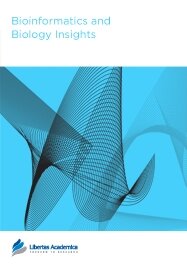

Publication Date: 19 Nov 2012
Type: Original Research
Journal: Bioinformatics and Biology Insights
Citation: Bioinformatics and Biology Insights 2012:6 255-263
doi: 10.4137/BBI.S10663

A cold-adapted marine alkaline protease (MP, accession no. ACY25898) was produced by a marine bacterium strain, which was isolated from Yellow Sea sediment in China. Many previous researches showed that this protease had potential application as a detergent additive. It was therefore crucial to determine the tertiary structure of MP. In this study, a homology model of MP was constructed using the multiple templates alignment method. The tools PROCHECK, ERRAT, and Verify_3D were used to check the effectiveness of the model. The result showed that 94% of residues were found in the most favored allowed regions, 6% were in the additional allowed region, and 96.50% of the residues had average 3D-1D scores of no less than 0.2. Meanwhile, the overall quality factor (ERRAT) of our model was 80.657. In this study, we also focused on elucidating the molecular mechanism of the two "flap" motions. Based on the optimized model, molecular-dynamics simulations in explicit solvent environments were carried out by using the AMBER11 package, for the entire protein, in order to characterize the dynamical behavior of the two flaps. Our results showed an open motion of the two flaps in the water solvent. This research may facilitate inhibitor virtual screening for MP and may also lay the foundationknowledge of mechanism of the inhibitors.
PDF (3.55 MB PDF FORMAT)
RIS citation (ENDNOTE, REFERENCE MANAGER, PROCITE, REFWORKS)
BibTex citation (BIBDESK, LATEX)
XML
PMC HTML

Bioinformatics and Biology Insights helps to reach all people with the latest results on research which directly helps them and with their needs. Three of our co-authors are from Burkina Faso, the malaria holoendemic region our research is based on, and serving as motivation for all our efforts for better treatment of malaria. It is good to be social and it is good to promote science world-wide through open access.
Facebook Google+ Twitter
Pinterest Tumblr YouTube